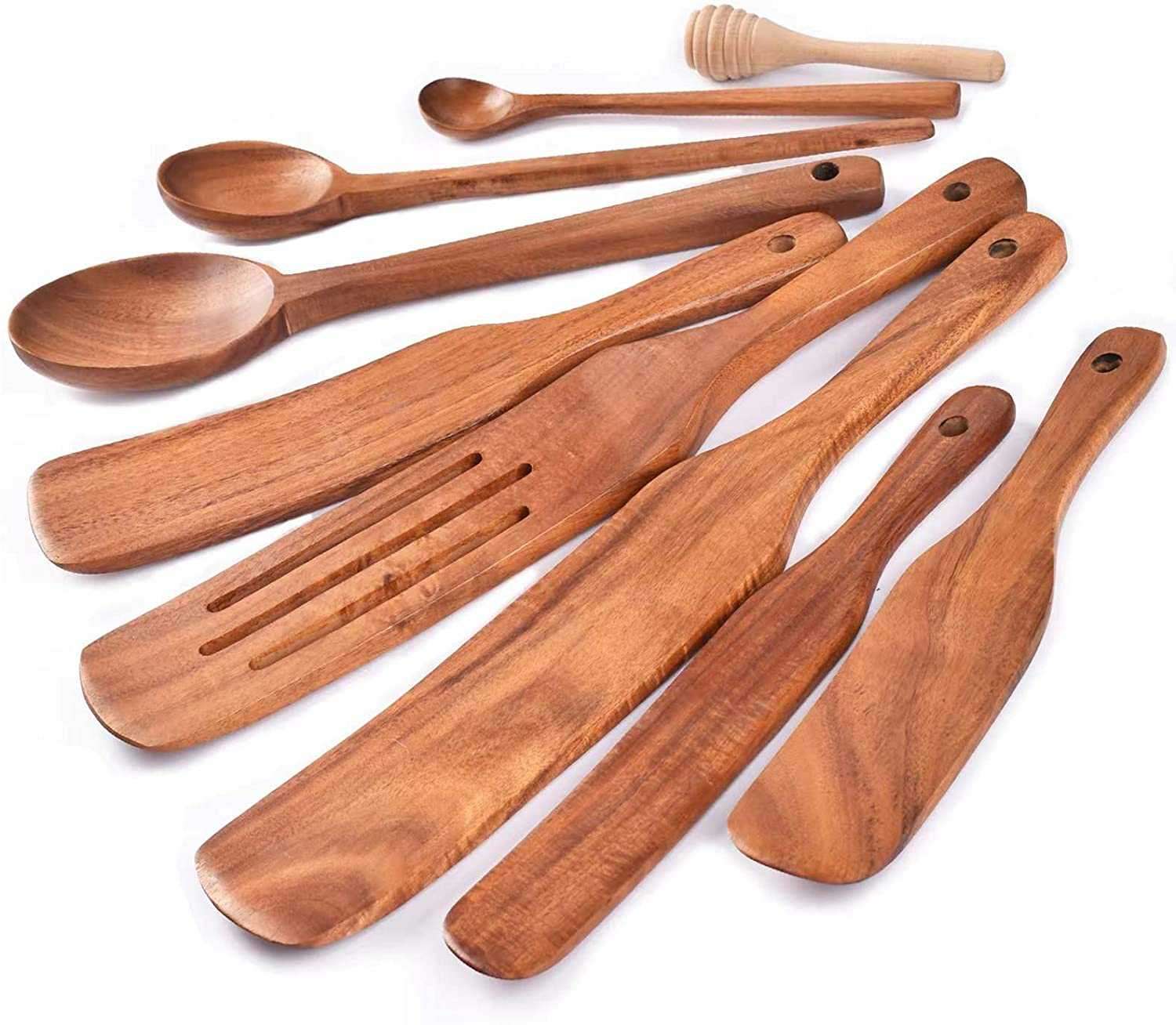While there are plenty of non-toxic cookware sets available, it is advisable to use only utensils made of stainless steel or wood. Both are durable and reusable and contain no harmful substances. Stainless steel grade 430 is one of the safest grades. Nickel, for instance, is toxic, but a different chemical is non-toxic. It is also a high-quality material and has heat-proof handles.
If you are worried about food safety
It is a good idea to purchase a set of non-toxic cooking utensils. For instance, a silicone cooking set by Craftatoz is a great choice. It features eight pieces made from food-grade silicone with acacia handles. Acacia is naturally antibacterial and is also heat-resistant.
Wooden utensils are a classic option and are a healthy choice. A solid wooden set will not scratch non-stick cookware, and is extremely heat-resistant. Another great option is bronze flatware. It is an expensive option, but it will last for decades. Some bronze pieces may contain toxic metals, but if you choose bronze utensils, you can be sure that your kitchen is toxin-free.
Silicone utensils are another excellent option.
These non-stick cookwares are made of high-quality silicone and are BPA-free. They also feature a rustproof stainless steel body and are suitable for any type of cooking. So, if you want to keep your kitchen toxins at bay, consider getting a set of silicone utensils.
If you are concerned about the safety of your cookware, the best choice is to buy a set of food-grade silicone utensils. This utensil set will make your kitchen safe and healthy. Its non-stick properties will prevent food from sticking to your cookware and will also keep it in good condition. You can even use these utensils for frying and preparing meats.
While non-stick silicone utensils are great for cleaning and storing, they are not as safe as a set made from metal. However, a set made of stainless steel will last a lifetime and not be affected by chemical reactions. In addition to being durable, a set of stainless steel utensils is also easy to clean and long-lasting. wooden spoon set available at Craftatoz.
Toxins from plastic utensils are harmful to the environment.
While there are many BPA-free utensils available, you should try to switch to non-stick utensils. These are safer to use than traditional plastic cookware and are dishwasher safe. But beware of a few drawbacks. Some utensils contain chemicals that can leach into your food.
The Safest Cooking Utensils to Avoid Chemicals in Your Kitchen Are Made of Silicone. By using silicone utensils, you are avoiding harmful chemicals from your kitchen. You should also avoid metal-free utensils. They are BPA-free and can be easily recycled after use. Lastly, be sure to wash your utensils thoroughly before using them on foods.
You can choose among many types of non-toxic utensils to keep your kitchen free of toxins. Luckily, there are some options that are both safe and effective. For example, wood is a classic material, and its non-stick surface means that these utensils will not scratch your non-stick cookware. These flatware items are also highly heat-resistant, but will not leave harmful residues in your kitchen.
When it comes to non-toxic kitchen utensils, bamboo is the best choice.
Organic bamboo is grown without harmful chemicals, and this material is known to be completely safe. A bamboo spoon is a great option for your kitchen because it’s lightweight and doesn’t scratch your precious wok. It is also dishwasher-safe, which means that you don’t have to worry about damaging the contents of your food.
Conclusion
Choosing a non-toxic kitchen utensil is the best way to keep your kitchen free of toxic chemicals. There are many varieties of non-toxic cooking utensils, but bamboo is the most natural option. These are made of pure wood, and don’t require any kind of coating to be safe for use in the kitchen. If you’re worried about plastic, wooden utensils are not a bad option.

